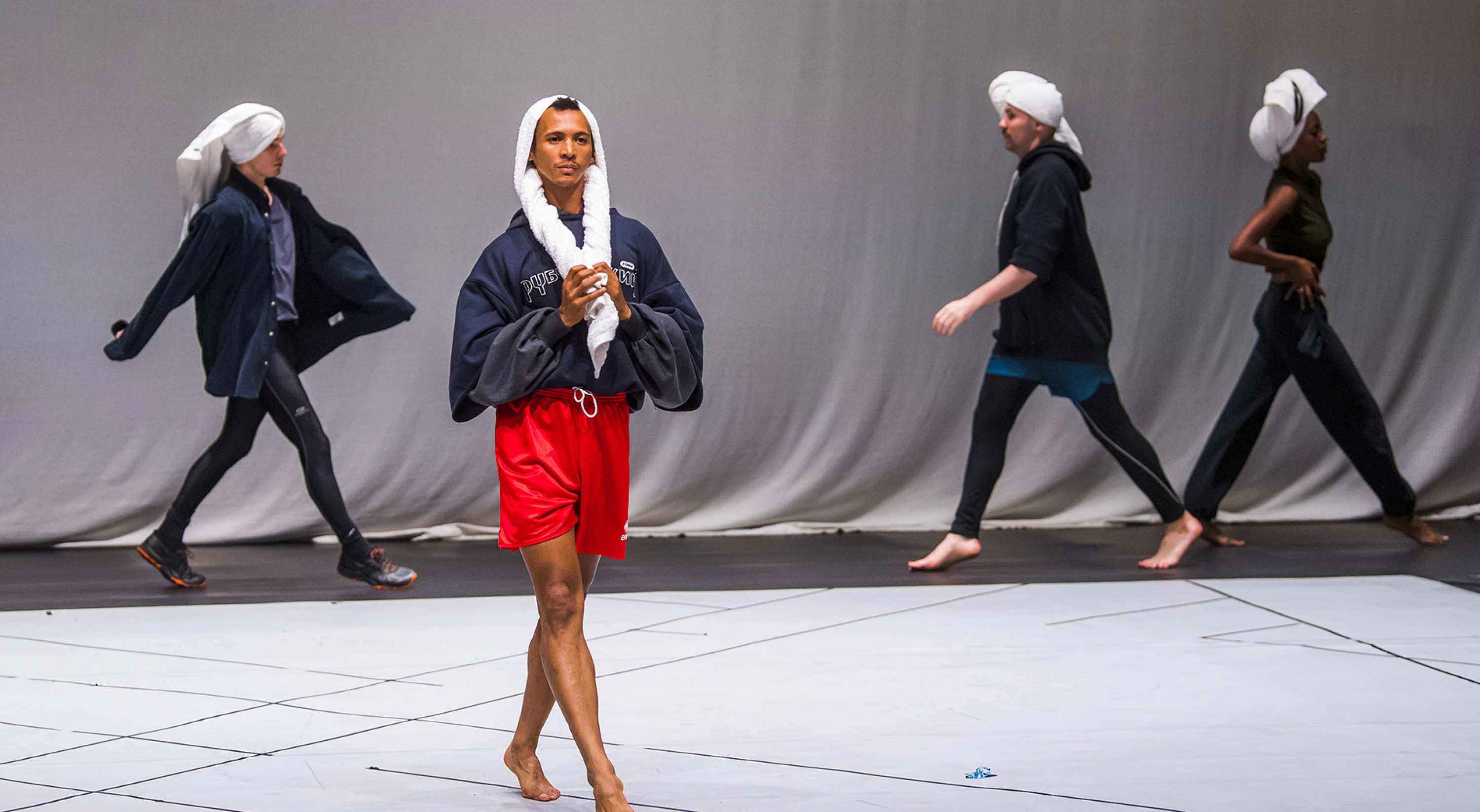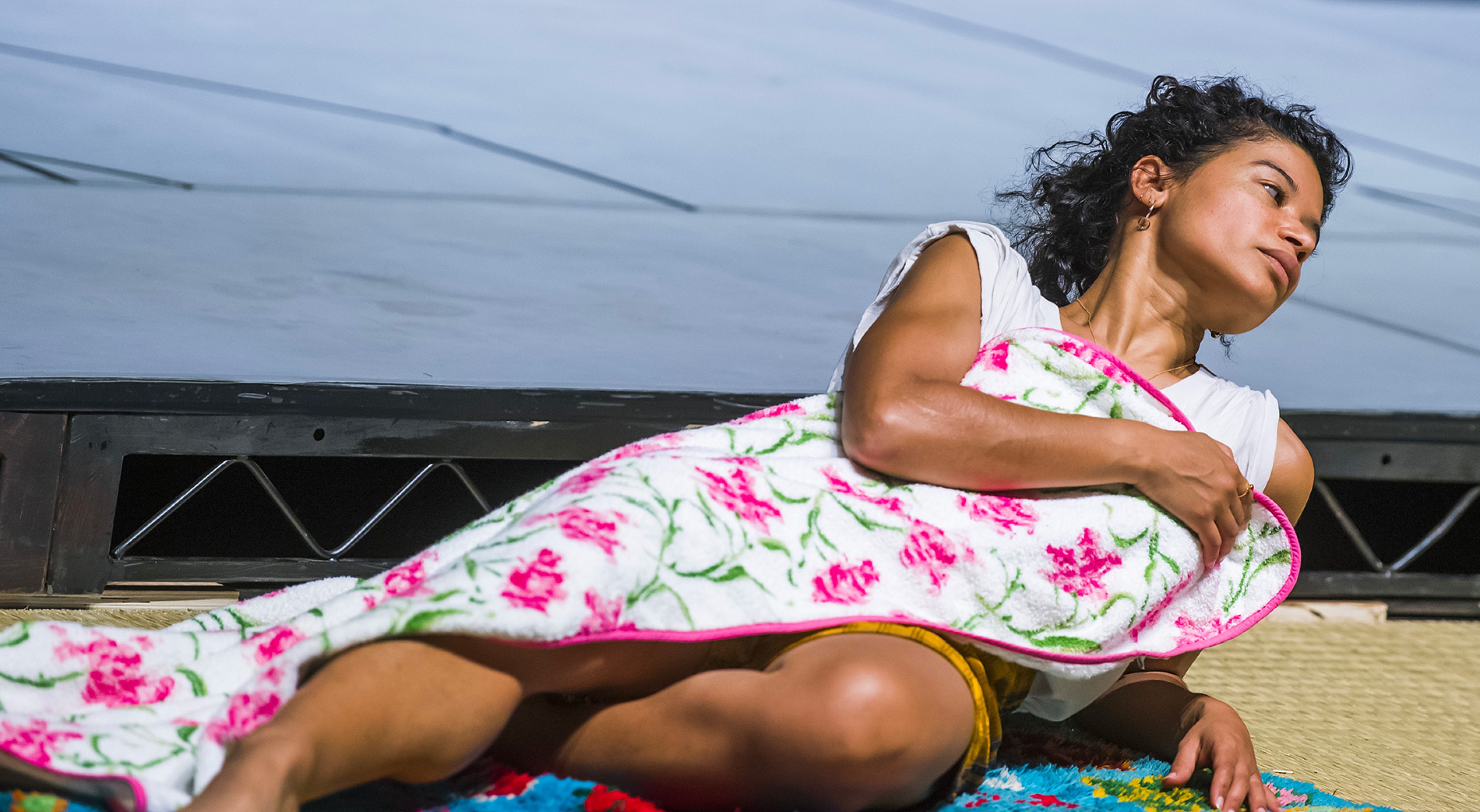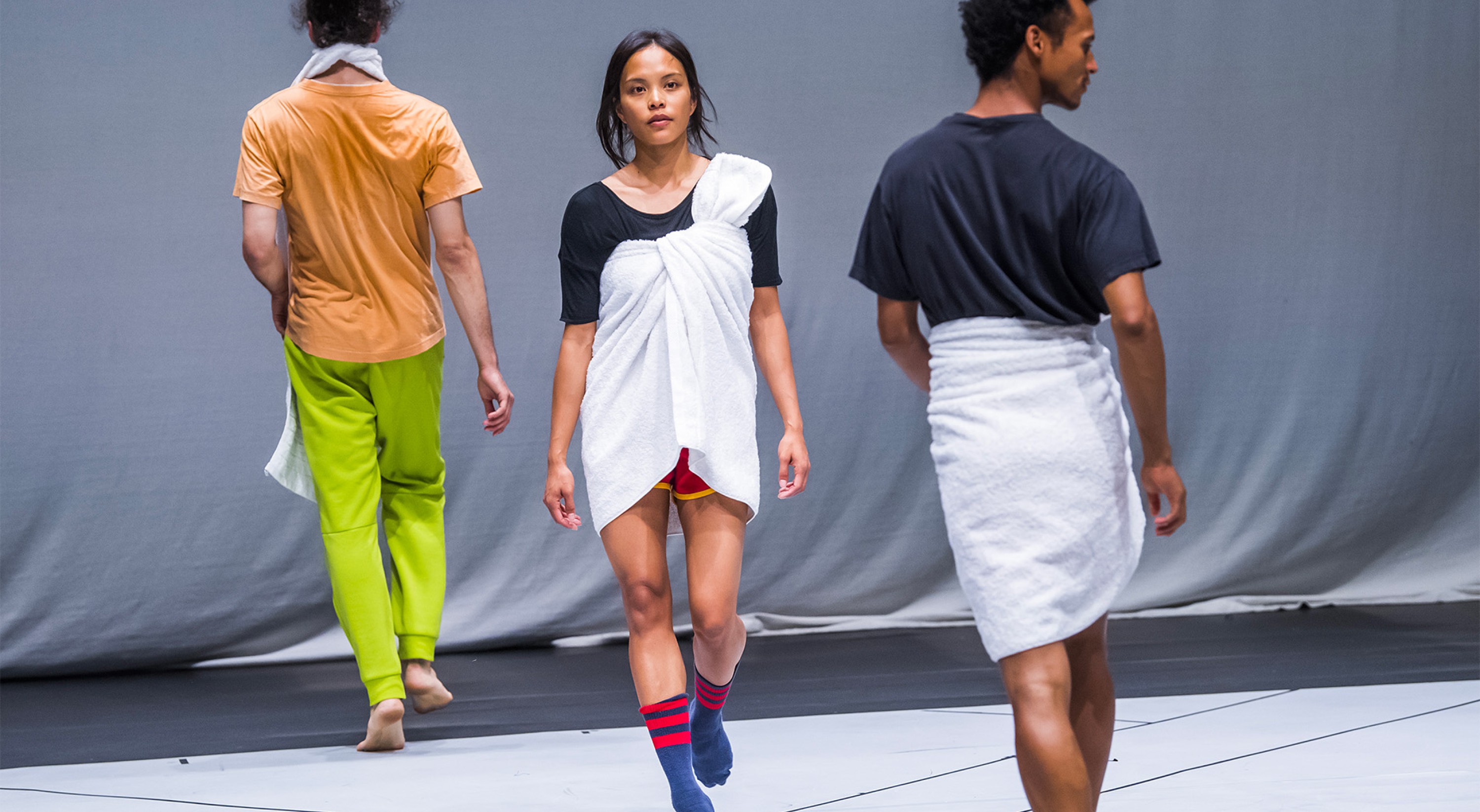Trajal Harrell
Maggie the Cat
decemberdec 14 – 16
Choreography, costumes, set design and sound, Trajal Harrell
With Stephanie Amurao, Maria Ferreira da Silva, Titilayo Adebayo, Helan Boyd Auerbach, Vânia Doutel Vaz, Rob Fordeyn, Challenge Gambodete, Trajal Harrell,
Christopher Matthews, Nasheeka Nedsreal, Tiran Normanson, Perle Palombe, Songhay Toldon, Ondrej Vidlar
Set design, Erik Flatmo, Trajal Harrell
Lighting, Stéfane Perraud
Assistant, Lennart Boyd Schürmann
Dramaturgy, Katinka Deecke
Production Manchester International Festival
Touring production Causecélèbre vzw
Distribution ART HAPPENS
Maggie the Cat is part of the trilogy Porca Miseria, commissioned by Manchester International Festival; Schauspielhaus Zürich; ONASSIS STEGI; Kampnagel (Hamburg); Holland Festival; The Barbican – Dance Umbrella (London); NYU Skirball (New York); Berliner Festspiele; The Arts Centre at NYU Abu Dhabi
La Villette (Paris) and the Festival d'Automne à Paris present this show in co-production
With the support of the Embassy of the United States of America, France
Portrait Trajal Harrell is presented with the support of Dance Reflections by Van Cleef & Arpels
France Culture is a partner of Portrait Trajal Harrell
The inspiration behind Maggie the Cat comes from Maggie, the main character in one of the most famous works of modern theatre, Cat on a Hot Tin Roof by Tennessee Williams. In the form of an enthralling parade of dancers doing a catwalk, Trajal Harrell masterfully blends popular and erudite culture in a single impetus.
Downstage, Trajal Harrell introduces his character, Big Mama, and Maggie the Cat. The references to the piece by Tennessee Williams and Mississippifilter into the entire evening. But for the choreographer, it is about a change of focus. The name "Maggie" becomes a prayer repeated over and over again to the rhythm of the forms shaped by the onstage performers. By means of simple accessories, such as a towel, quilt, or pillow, Trajal Harrell creates the different elements of a prized dressing room, and turns Maggie's abandoned house into a theatre of fashion. As is his custom, the artist combines court dance and urban-based gestures in a great mix of movement. Unless, of course, what he is wanting to do is to pay homage to the unseen figures of Hollywood films, those actors and actresses who, stemming from the America's ethnic minority groups, more often than not played the role of servants. Maggie the Cat is rich in contrasts, a cry of love which is full of life. As the performers leave the traces of their steps on the ground, their dance becomes living memory.
In the same place


